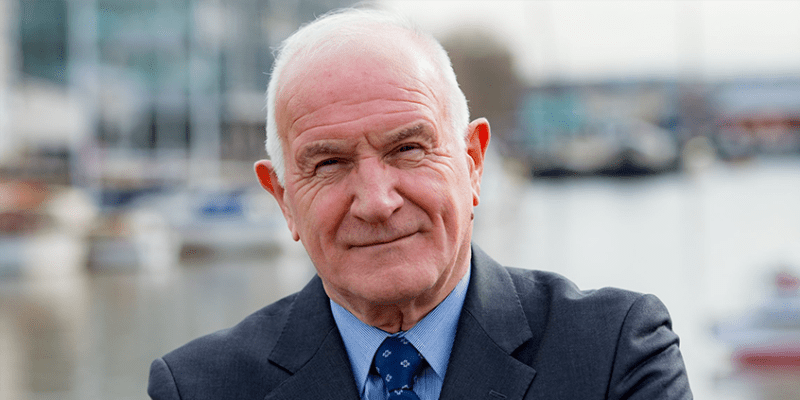
We sat down with Dr John Savage CBE who, as Chair of Bristol Chamber of Commerce, sits on the board of directors at Business West, discussing the importance of business groups such as The Bristol Initiative.
The Bristol Initiative sits at the heart of Business West and is a community of 160 business leaders who positively influence the way our area is shaped, managed & developed.
From 1989 John was Chief Executive of The Bristol Initiative and, from February 1993, Chief Executive of the Bristol Chamber of Commerce & Initiative, before becoming Executive Chairman of Bristol Chamber of Commerce and Initiative. During this period, he also held many other public roles including time spent as Chair of the Learning and Skills Council and of University Hospitals Bristol, the city centre Teaching Hospital.
Take us back to Bristol in the late 1980s and the formation of ‘The Initiative’
The Bristol Initiative was part of a nationwide reaction to the riots happening across the country at the time. Bristol was verging on being an undeveloped place with high crime. Like Toxteth and Brixton, it had a marked underclass and the idea behind the Initiative was to try to help the local authorities to do something about it. There were 19 initiatives across the country at the time. They eventually disappeared, and we’re the only one that remained over time.
I was initially contracted to work for three years, but after just a few months I had to say, look this isn’t a three-year project and it needs to be looked at over a long period of time. In the first eighteenth months, Tony Shepherd, who was an active voluntary member of the Bristol Initiative’s Board until 1999, and I built the Initiative from 12 to 50 paying members.
For a long time, we didn’t have offices. I was just working from my house until British Aerospace suggested I annex Bristol Chamber of Commerce which was important but insolvent. So, I took the company over and began running the Initiative projects from there.
What were the key issues you were looking at in those early years?
We had the highest homelessness problem outside of London and ranked as one of the highest places for personal crime. We did some important activity around these issues, in terms of raising awareness in local government. Part of our role was to get the confidence of the local authority. We supported the building of the modern reconstruction of The Matthew, a replica of the boat used by the explorer John Cabot, helping to revive the city centre and attract visitors.
Then there was of course the Harbourside development. I got on well with the Chief Executive of the Bristol City Council, Mike Robinson. At the time, four or five major landowners kept putting in planning applications for their bid and were not accepted. It was me that said, lets get these people together and get them to understand that if they join up, we could develop the whole area holistically. We wrote something called the Harbourside Accord, which led to fantastic regeneration.
Moving on to today, do you think there’s still that same push from business to do things about the city?
I think nowadays the problem of transport and accessibility is at the forefront of business’ minds.
Back when ‘the Initiative’ started, we were engaged in trying to say to developers “you can come to us, there is a body you can talk to other than the city council. We can be the go-between.”
However, that doesn’t exist now as investors found their own way of doing things. So, for example, the University and YTL in Filton, didn’t need seducing and I think that was a legacy of the confidence we created in the place.
I think ‘the Initiative’ enables businesses to come together and discuss important issues, but it’s evolved and changed since the 80s, now sitting at the heart of Business West.
In terms of skills, do you think we are developing people in the right way for the business needs of the future?
I think that businesses are good at skilling people up within the foreseeable future, for ten years or so. I am passionate about educating our young people and I think it’s particularly important to educate young people whilst they’re in public care, to be able to interface with the realities of life and with their fellows in a positive way. It’s soft skills that are now so important to develop in young people.
Business West is currently leading the Local Skills Improvement Plans (LSIPs) in the area, working with employers and education providers to set out key changes needed to ensure post-16 education prepares young people for work, which is a crucial piece of work. We’re finding that there are so many kids who don’t want to leave home and go out into the world. Often young people can’t come and have a conversation and they can’t interview. That really needs addressing.
- Log in to post comments
